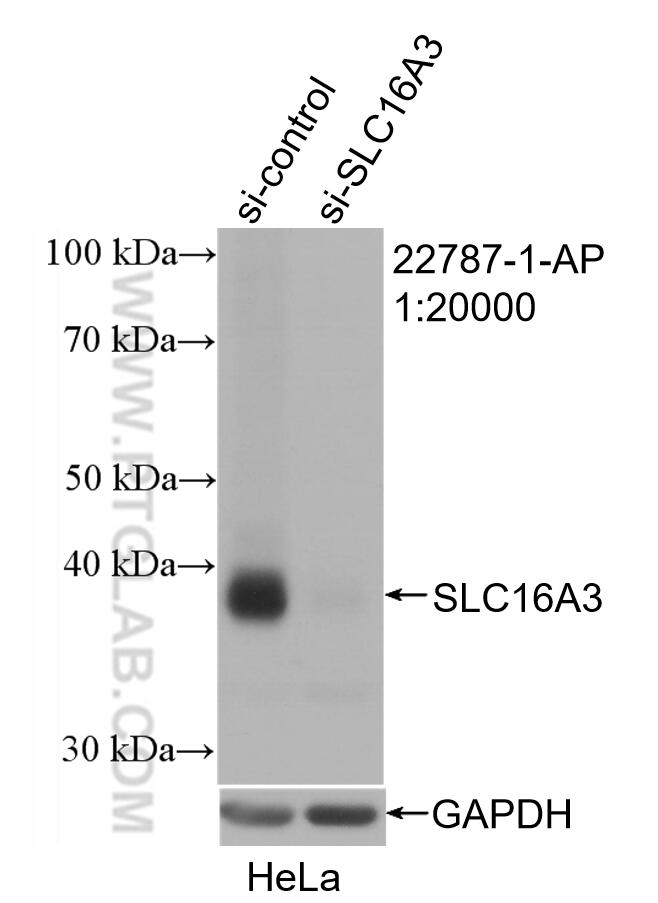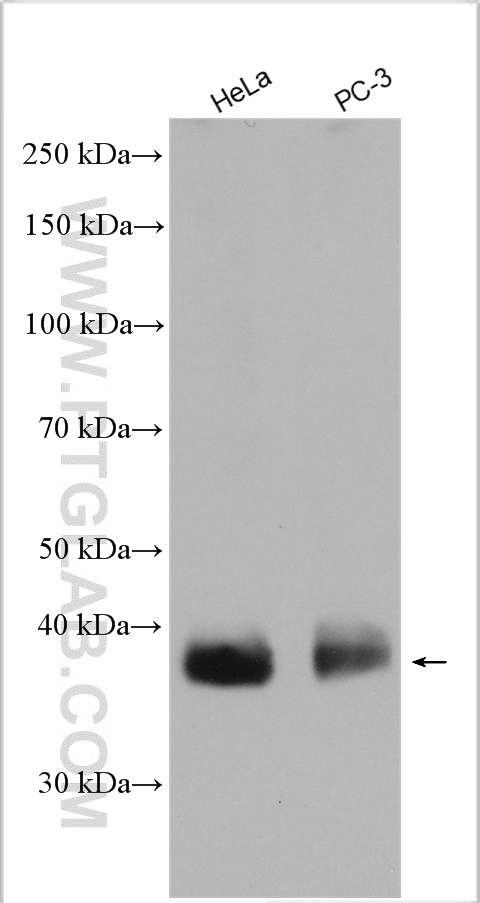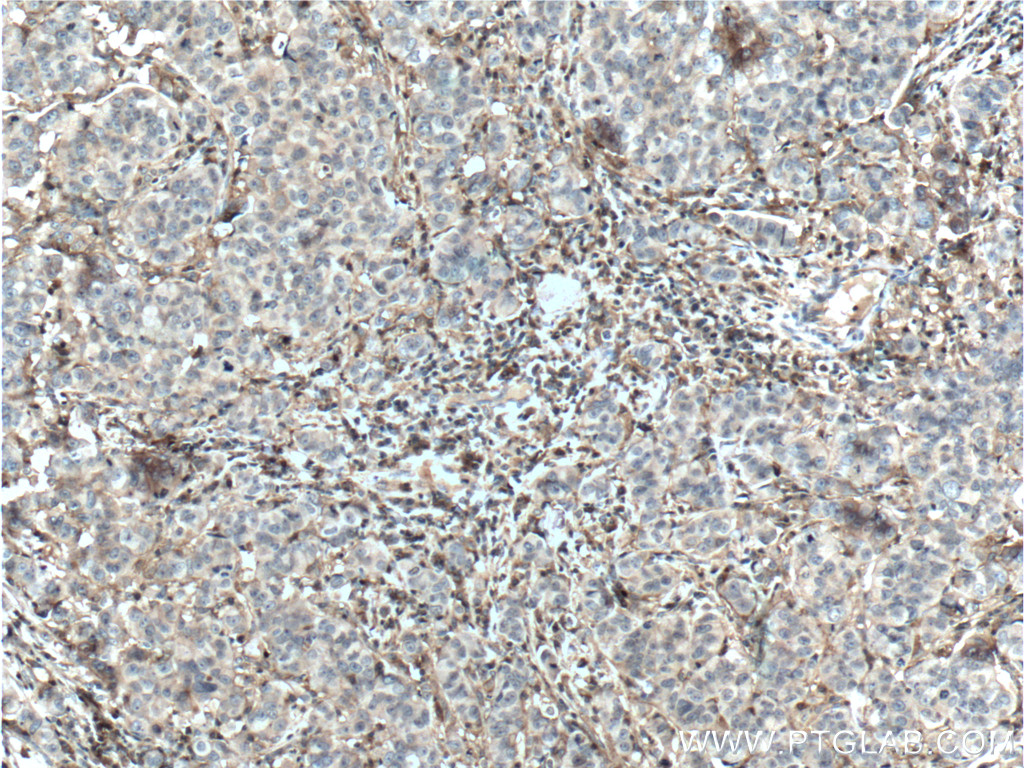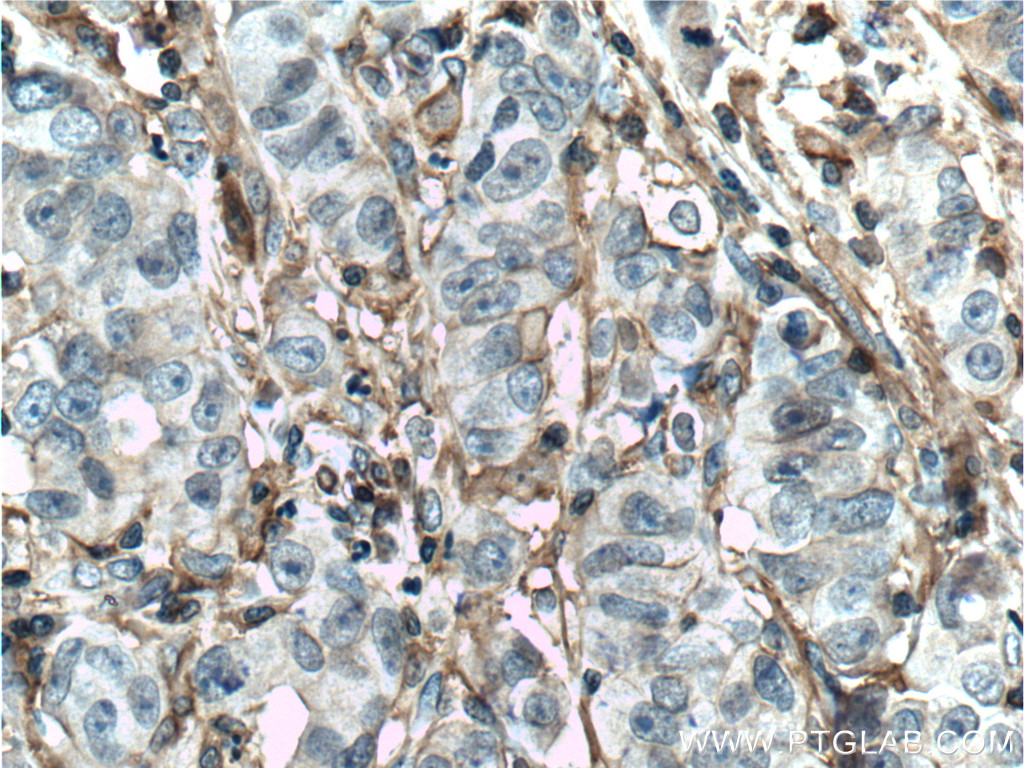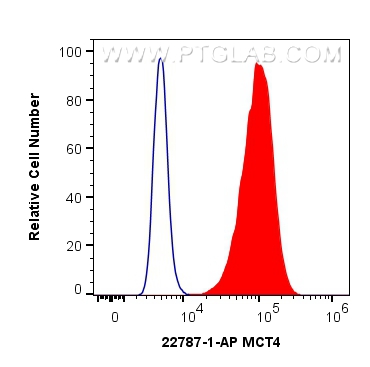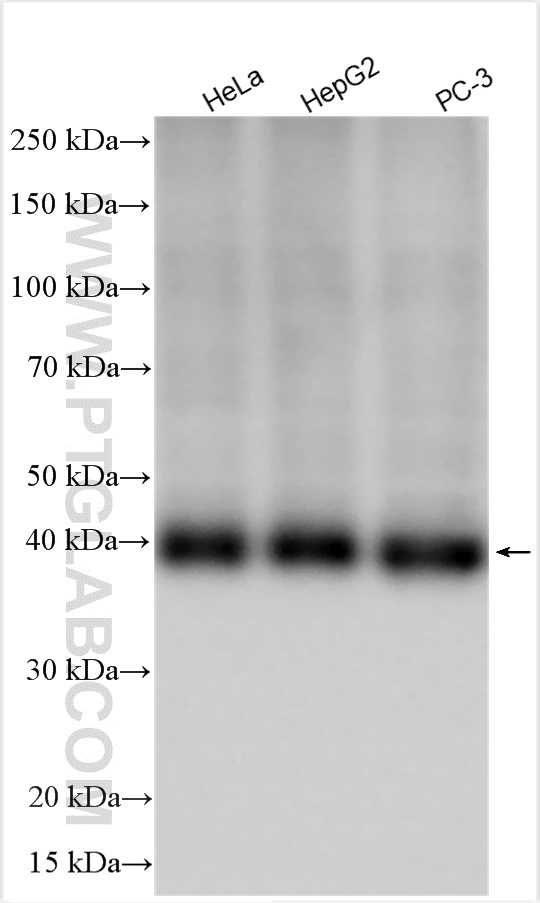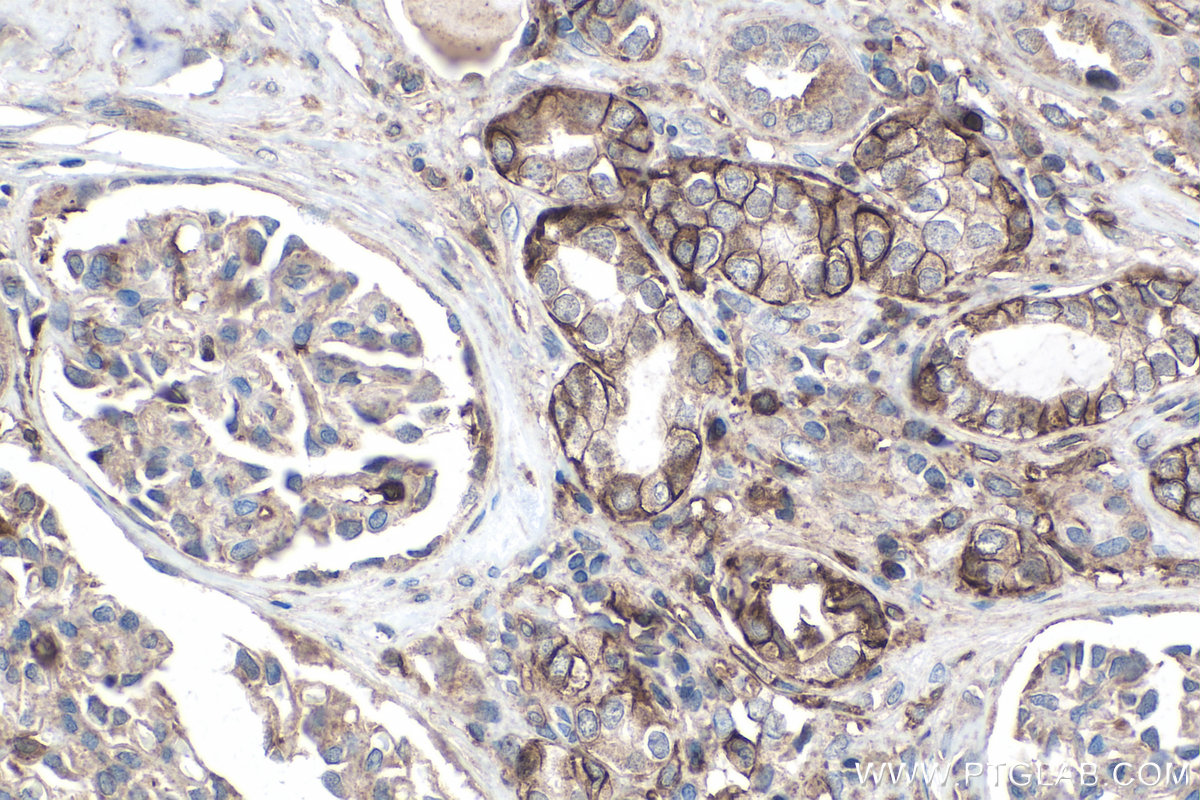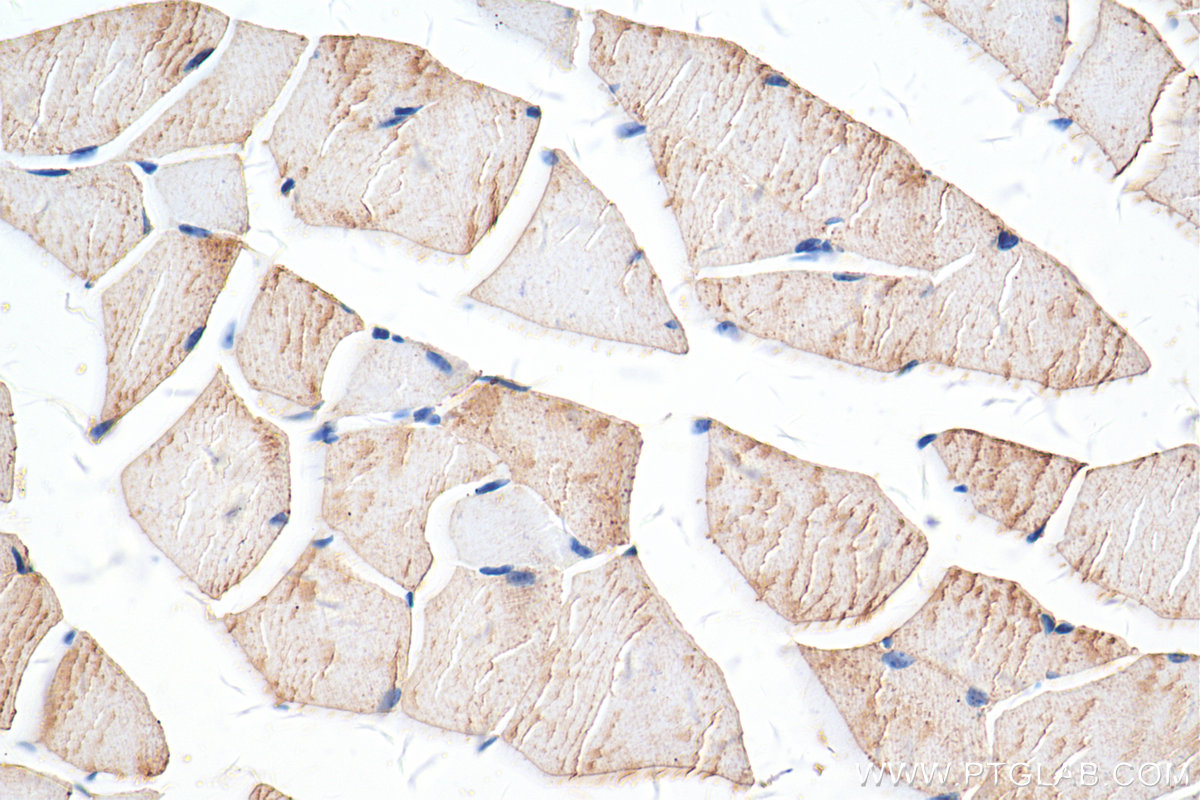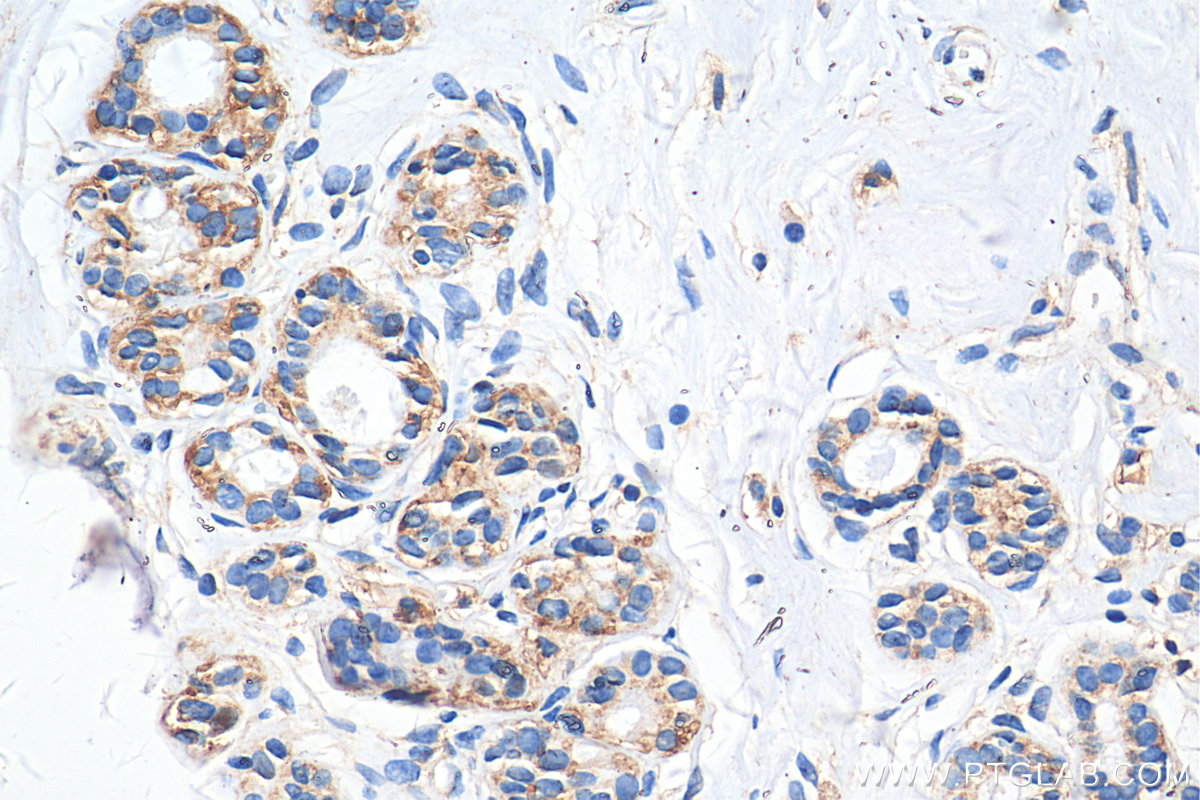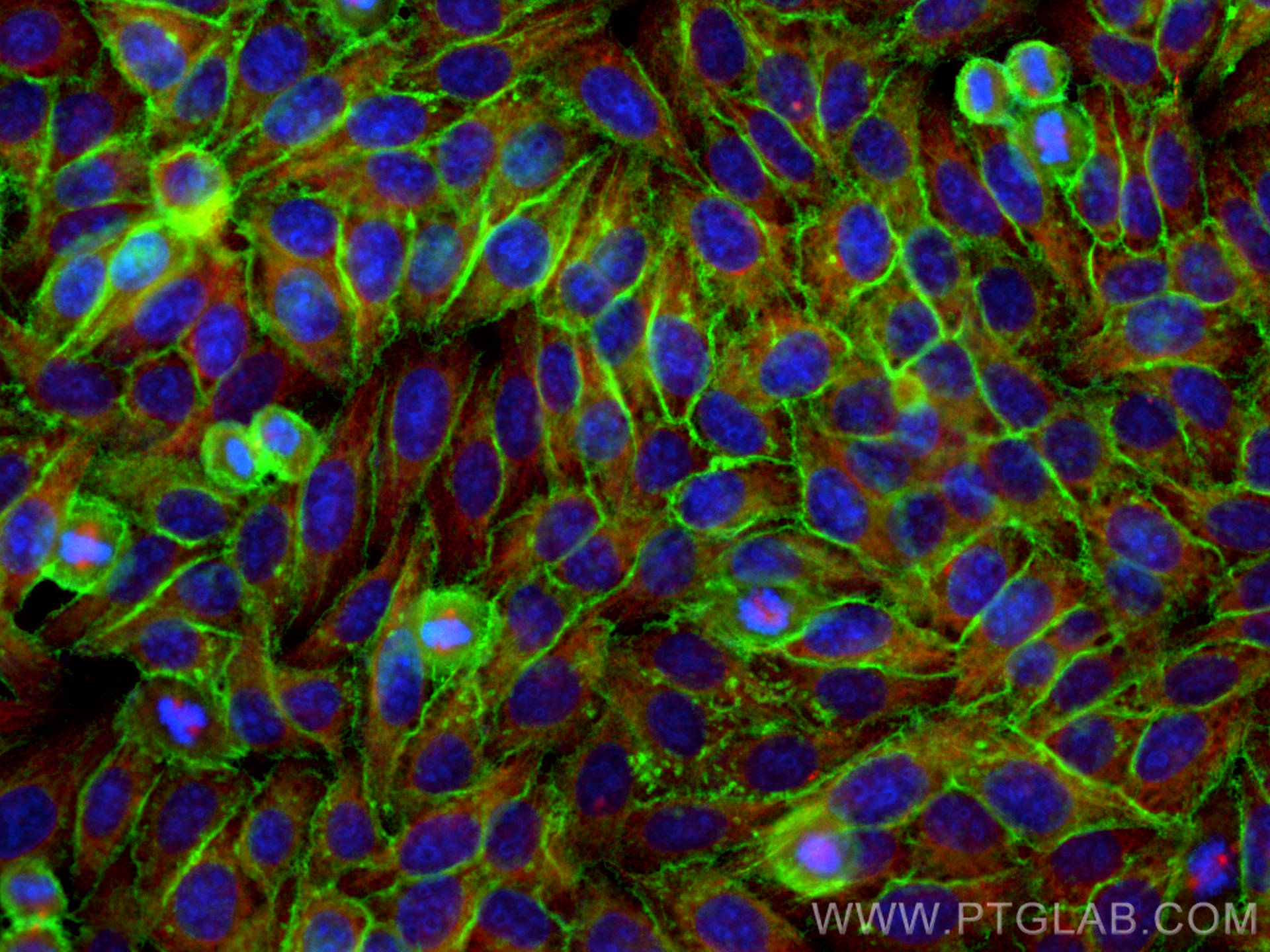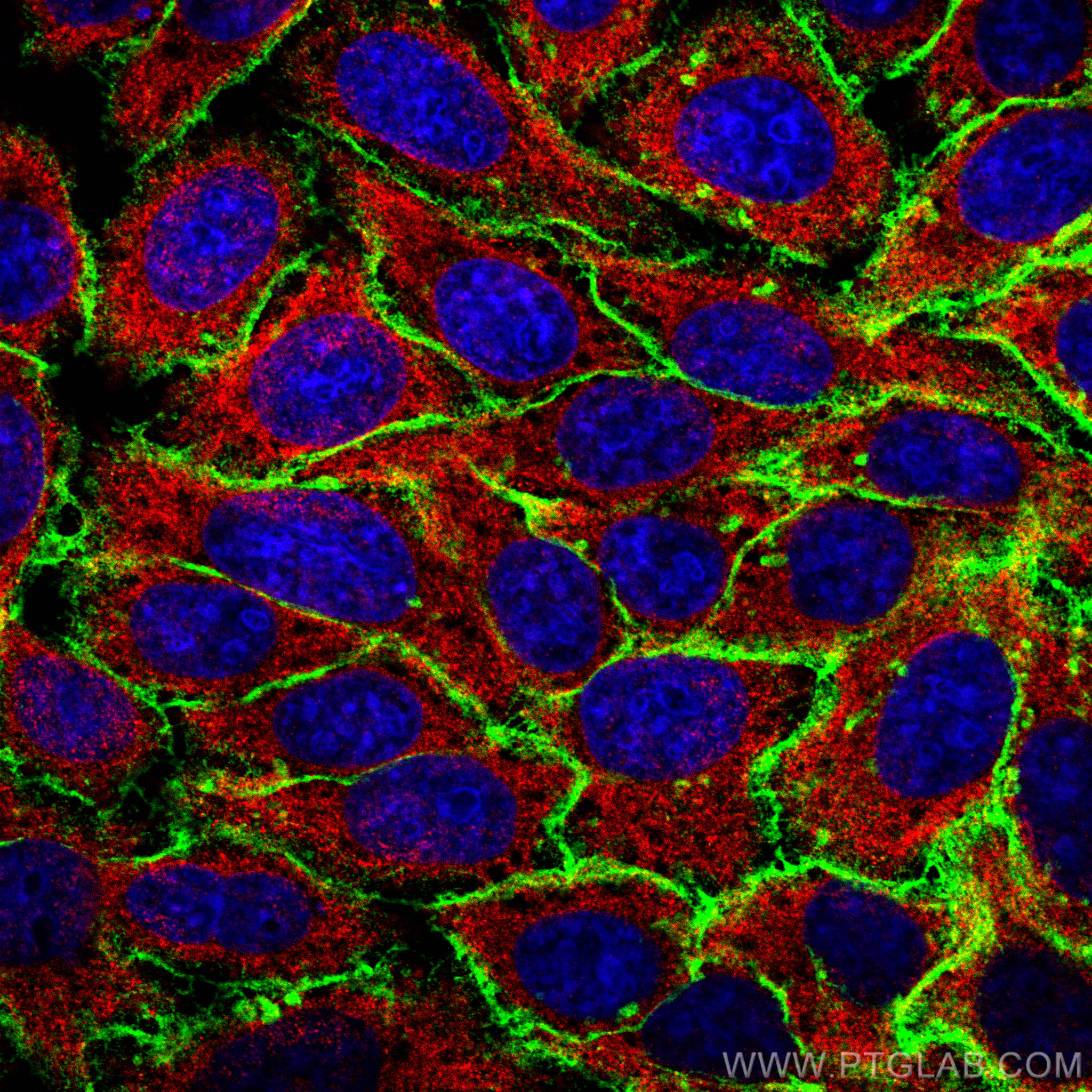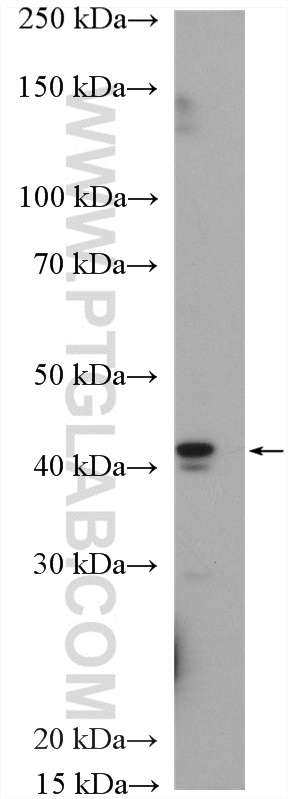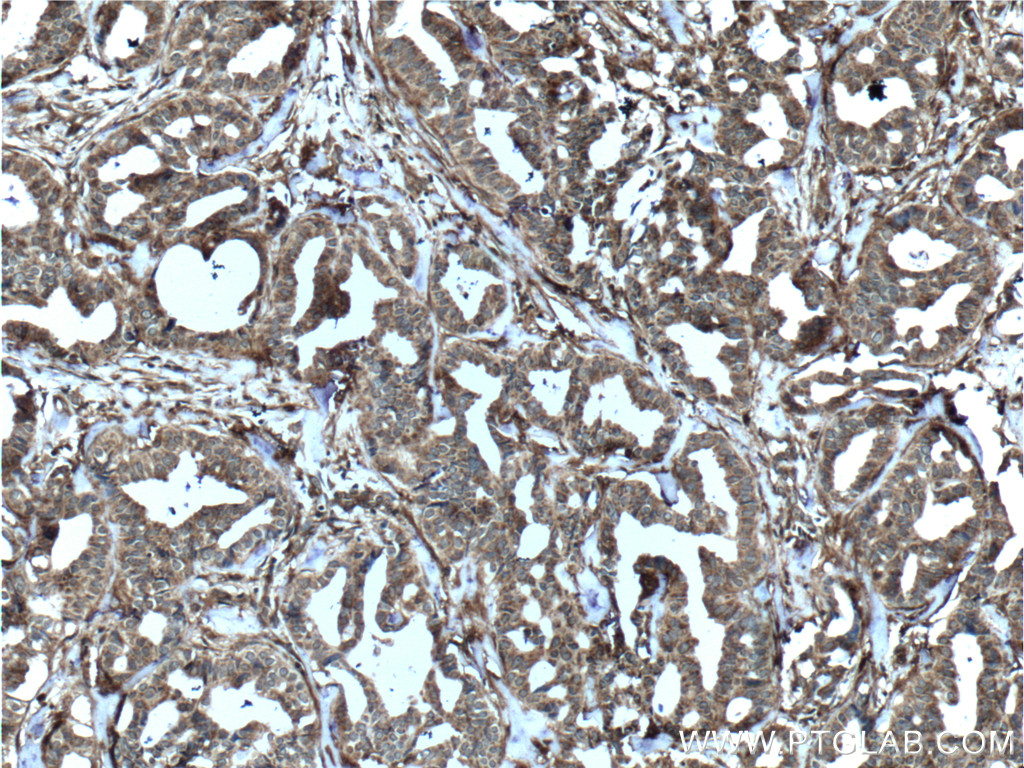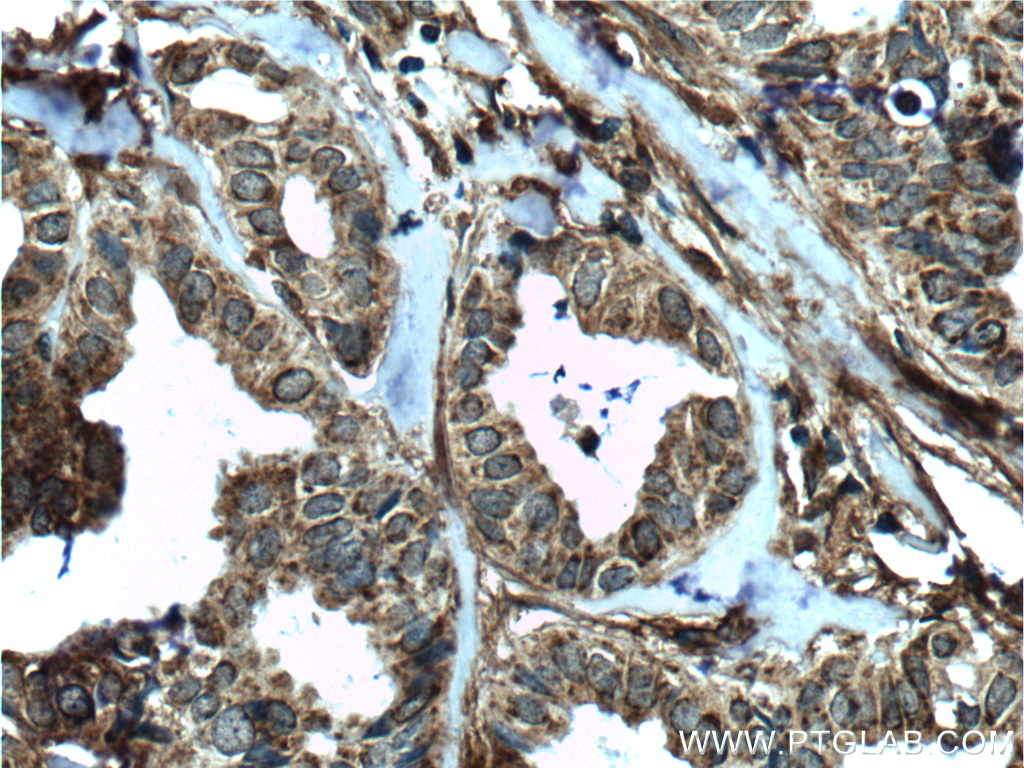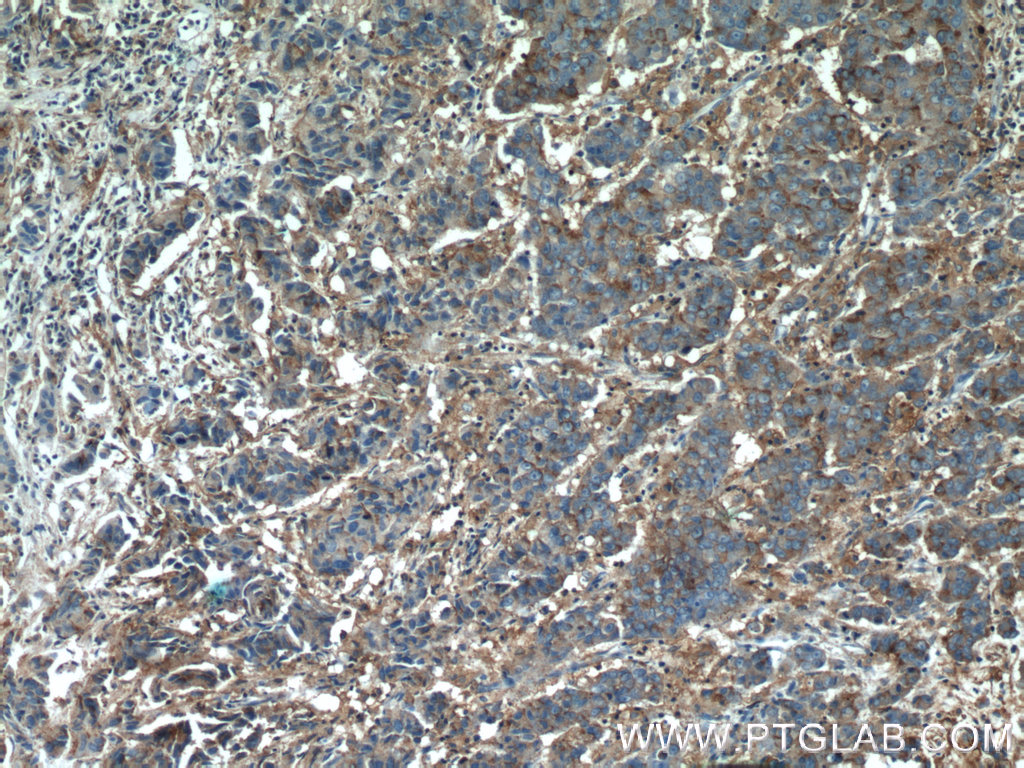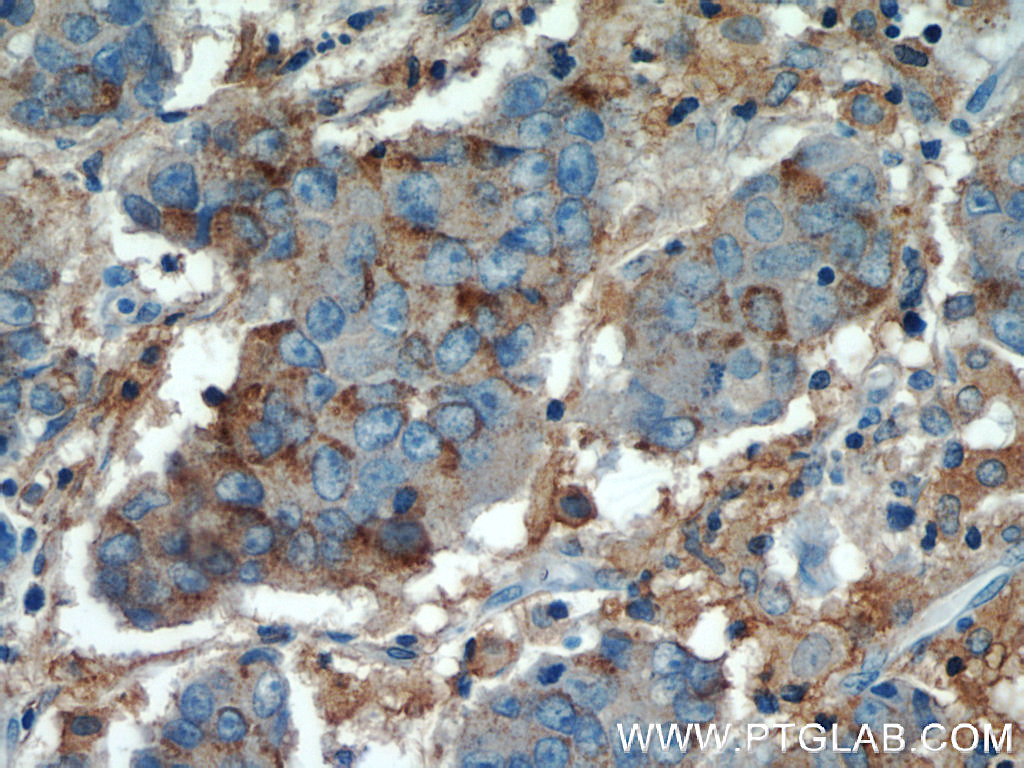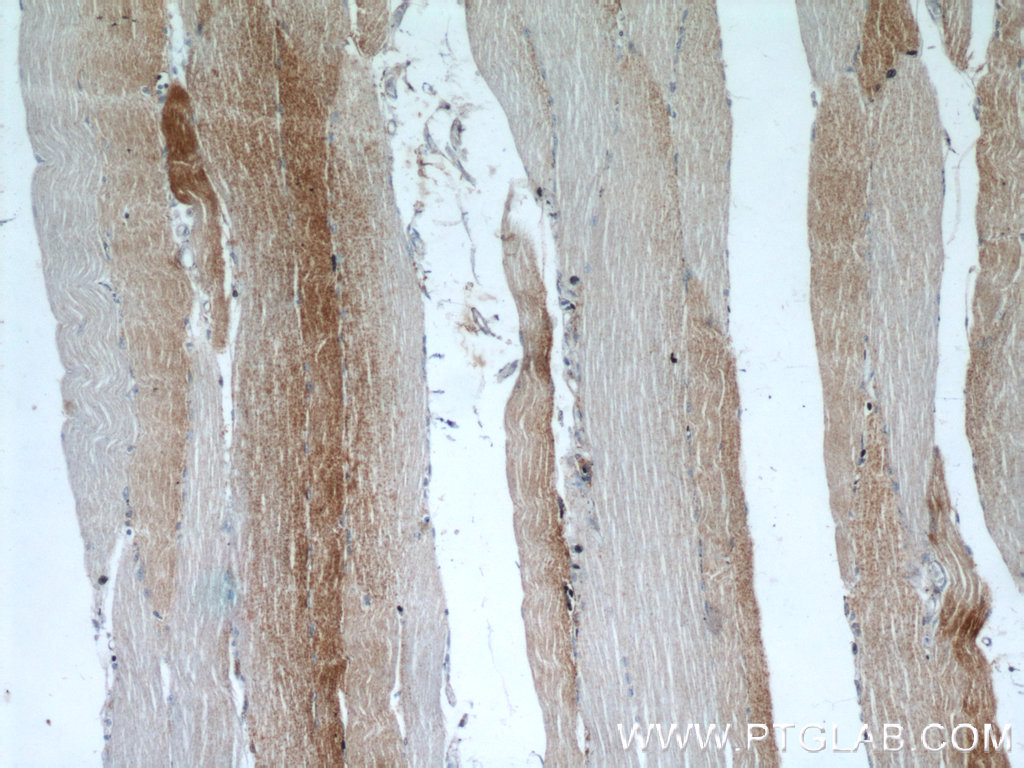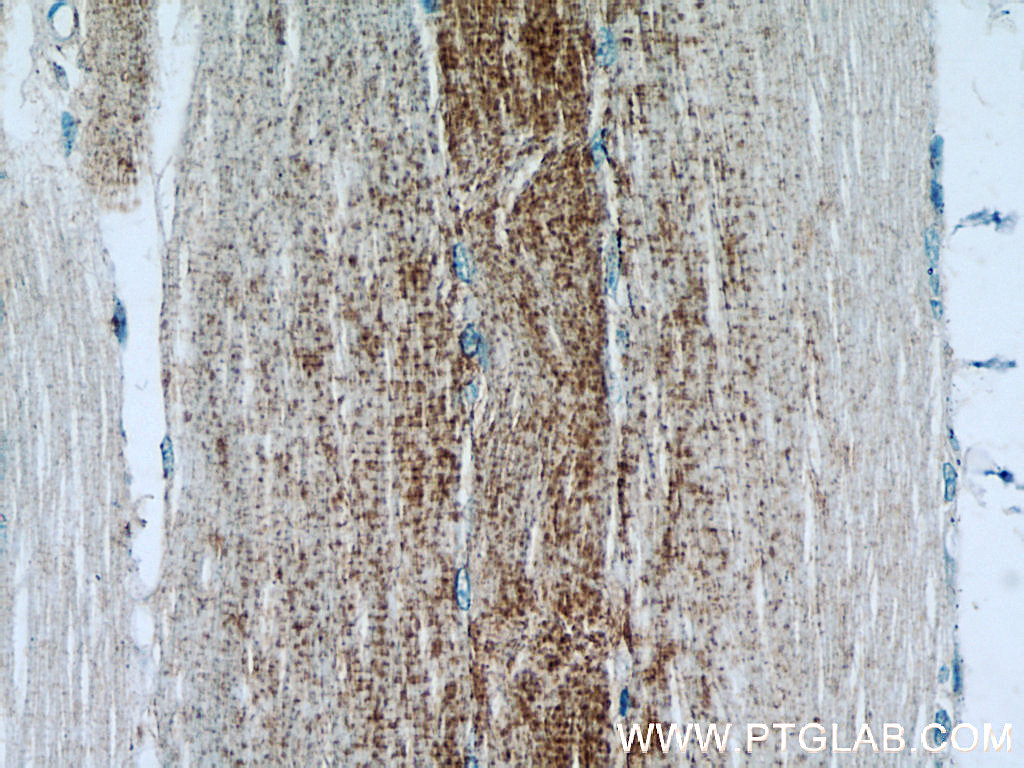验证数据展示
经过测试的应用
| Positive WB detected in | HeLa cells, rat skeletal muscle tissue, HepG2 cells, PC-3 cells |
| Positive IHC detected in | human breast cancer tissue, human prostate cancer tissue, human renal cell carcinoma tissue, mouse skeletal muscle tissue, human skeletal muscle tissue Note: suggested antigen retrieval with TE buffer pH 9.0; (*) Alternatively, antigen retrieval may be performed with citrate buffer pH 6.0 |
| Positive IF/ICC detected in | HepG2 cells |
| Positive FC (Intra) detected in | HepG2 cells |
推荐稀释比
| 应用 | 推荐稀释比 |
|---|---|
| Western Blot (WB) | WB : 1:2000-1:20000 |
| Immunohistochemistry (IHC) | IHC : 1:1000-1:4000 |
| Immunofluorescence (IF)/ICC | IF/ICC : 1:200-1:800 |
| Flow Cytometry (FC) (INTRA) | FC (INTRA) : 0.80 ug per 10^6 cells in a 100 µl suspension |
| It is recommended that this reagent should be titrated in each testing system to obtain optimal results. | |
| Sample-dependent, Check data in validation data gallery. | |
产品信息
22787-1-AP targets MCT4 in WB, IHC, IF/ICC, FC (Intra), IP, ELISA applications and shows reactivity with human, mouse, rat samples.
| 经测试应用 | WB, IHC, IF/ICC, FC (Intra), ELISA Application Description |
| 文献引用应用 | WB, IHC, IF, IP |
| 经测试反应性 | human, mouse, rat |
| 文献引用反应性 | human, mouse, rat, goat |
| 免疫原 | MCT4 fusion protein Ag18788 种属同源性预测 |
| 宿主/亚型 | Rabbit / IgG |
| 抗体类别 | Polyclonal |
| 产品类型 | Antibody |
| 全称 | solute carrier family 16, member 3 (monocarboxylic acid transporter 4) |
| 别名 | SLC16A3, MCT-4, MCT3, MCT 4 |
| 计算分子量 | 465 aa, 49 kDa |
| 观测分子量 | 38-42 kDa |
| GenBank蛋白编号 | BC112269 |
| 基因名称 | MCT4 |
| Gene ID (NCBI) | 9123 |
| RRID | AB_11182479 |
| 偶联类型 | Unconjugated |
| 形式 | Liquid |
| 纯化方式 | Antigen affinity purification |
| UNIPROT ID | O15427 |
| 储存缓冲液 | PBS with 0.02% sodium azide and 50% glycerol pH 7.3. |
| 储存条件 | Store at -20°C. Stable for one year after shipment. Aliquoting is unnecessary for -20oC storage. |
背景介绍
The monocarboxylate transporter 4 (MCT4, also known as SLC16A3) is involved in the transportation of metabolically important monocarboxylates such as lactate, pyruvate, acetate and ketone bodies. It is widely expressed, particularly strongly in glycolytic tissues such as white skeletal muscle fibres, astrocytes, white blood cells, chondrocytes and some mammalian cell lines. MCT4 is also linked to tumor biology because it mediates lactate transport across membranes resulting in antiapoptotic effects.
实验方案
| Product Specific Protocols | |
|---|---|
| WB protocol for MCT4 antibody 22787-1-AP | Download protocol |
| IHC protocol for MCT4 antibody 22787-1-AP | Download protocol |
| IF protocol for MCT4 antibody 22787-1-AP | Download protocol |
| Standard Protocols | |
|---|---|
| Click here to view our Standard Protocols |
发表文章
| Species | Application | Title |
|---|---|---|
Cell Metab Acetate enables metabolic fitness and cognitive performance during sleep disruption | ||
Nat Cancer Targeting the bicarbonate transporter SLC4A4 overcomes immunosuppression and immunotherapy resistance in pancreatic cancer | ||
Nat Metab Lactylome analysis suggests lactylation-dependent mechanisms of metabolic adaptation in hepatocellular carcinoma
| ||
Adv Sci (Weinh) SETDB1 Methylates MCT1 Promoting Tumor Progression by Enhancing the Lactate Shuttle | ||
Dev Cell Lactate shuttling links histone lactylation to adult hippocampal neurogenesis in mice |
